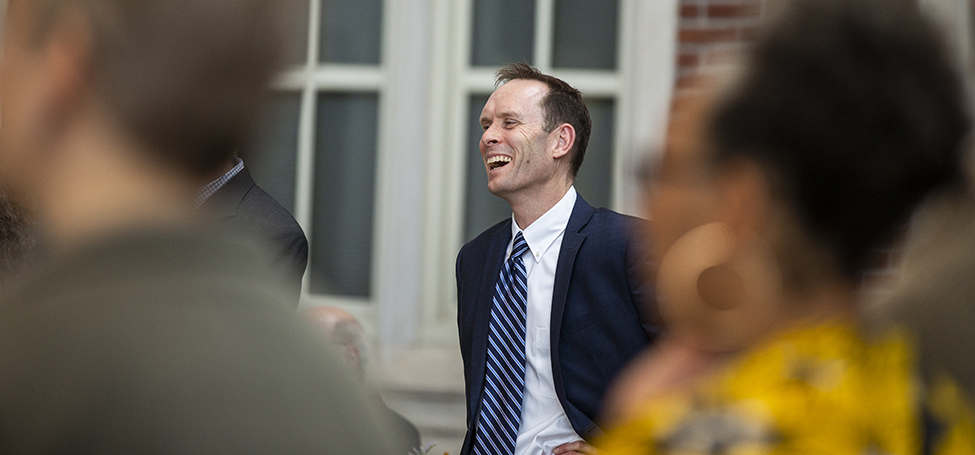
On the Virtues of Stretching Oneself
This spring, I had the extraordinary privilege to speak to 70 Grinnell students and recent alumni who applied for competitive external fellowships this year. These remarkable people had summoned the courage to apply for awards like the Fulbright, Watson, Truman, Marshall, or Rhodes scholarships.
As I considered what I might offer by way of congratulations and advice, I recalled my own experiences as a history major at Pomona College, where my advisers had encouraged me to apply for such awards as well. I decided to apply for a Fulbright teaching fellowship to Ecuador. I had studied Spanish for eight years, both in high school and at college, and had achieved a high degree of fluency. I had studied abroad in Spain and was excited about the chance to work in Latin America. I was deeply interested in the history of U.S.-Latin American relations and was writing a senior thesis on the Alliance for Progress, the Kennedy administration’s signature foreign aid program. I extensively researched the country’s history, economy, and social structure. My interview with the college’s committee went well. They recommended me strongly, and I was thrilled to receive a letter from the Fulbright program informing me I was a finalist. Alas, about a month later I received another letter advising me that I had not, in fact, won the award.
I also applied for a Rhodes and a Marshall. Faculty friends and supporters told me that my interests in poverty and development would be attractive to selection committees. They noted that I had volunteered at a local elementary school, helping teach English as a second language to the children of recent immigrants. They suggested that my experience as a varsity athlete in cross country and track might be beneficial as well. After a grueling mock interview on campus, I was miraculously selected in a first-round Rhodes interview in my home state of Hawaii. The finalist interview, at the University of Southern California, did not go as well. I struggled to respond to hypothetical questions about information, security, and democracy. When the winners were announced that evening, I was not among the 32 award recipients. Instead of flying off to Oxford, I went back to my residence hall, promptly contracted the stomach flu, and was sick for a week. My pursuit of a Marshall scholarship for graduate study in the United Kingdom ended in a similar way. I applied, was a finalist, interviewed, and didn’t make the last cut.
The disappointment of coming so close and not winning can be hard to take. But looking back, I wouldn’t trade the experience for the world. Learning to write about oneself and to interview are vital skills for the rest of one’s professional life, and I clearly benefited from the opportunity. More importantly, the application process — and its demand that one explore fundamental questions of purpose, meaning, and values — is an invitation to essential self-discovery.
The really important question is not “What am I good at?” Grinnell College students, of course, are good at a lot of things! The vital, essential questions are instead “What do I care about? What matters to me? What might I be willing to commit myself to?” Those questions are of an entirely different order, and applying for such fellowships is an invitation to explore them in a thoughtful, reflective, and serious way. Winning awards is great, and Grinnell students win many every year, but the real learning comes in the process of personal discernment.
A great liberal arts education truly liberates you; it enables you to discover talents, interests, and abilities you didn’t know you possessed and to bring them to bear in a world that truly needs your help. Supported by a wonderful and devoted faculty and staff, Grinnell’s students learn, grow, and stretch themselves toward that goal each day.
As I depart Grinnell this summer to become president of Punahou School in Honolulu, I carry with me a deep sense of admiration for Grinnell’s community. After five years, my confidence in the College’s vital mission is stronger than ever.
